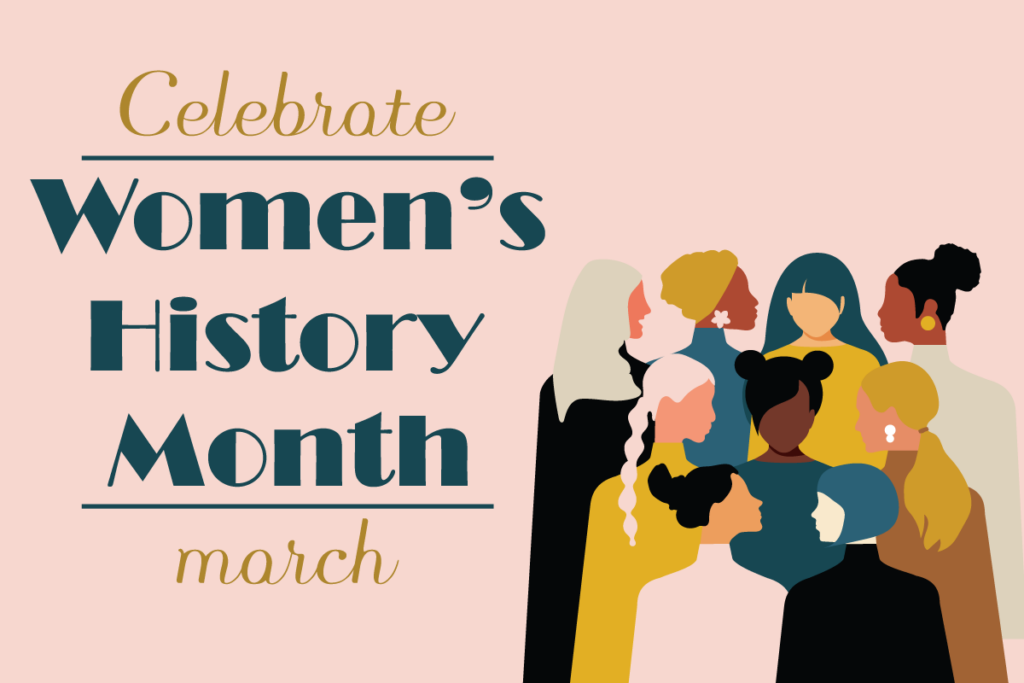
March offers us an opportunity to celebrate Women’s History Month
This annual event honors women’s achievements and contributions throughout history. The theme for the 2024 Women’s History Month, “Women Who Advocate for Equity, Diversity, and Inclusion,” highlights the important role women play in promoting equality and diversity in their respective fields.
Women’s History Month originally began as a local celebration in Santa Rosa, California, organized by the Education Task Force of the Sonoma County Commission on the Status of Women. They planned a “Women’s History Week” celebration in 1978, choosing the week of March 8 to align with International Women’s Day. The following year, other communities across the country initiated their own Women’s History Week celebrations, which led to a national movement.
In 1980, a consortium of women’s groups and historians, led by the National Women’s History Project (now the National Women’s History Alliance), successfully advocated for national recognition. President Jimmy Carter issued the first Presidential Proclamation in February 1980, declaring the week of March 8, 1980, as National Women’s History Week. The tradition continued with subsequent Presidents proclaiming a National Women’s History Week in March until 1987 when Congress passed Public Law 100-9, officially designating March as “Women’s History Month.“

Some key dates associated with Women’s History Month:
- International Women’s Day: Celebrated on March 8, International Women’s Day is a global holiday established in 1911 to honor women’s social, economic, cultural, and political achievements.
- The first major march on Washington by suffragists: On March 3, 1913, thousands of suffragists marched in Washington, D.C., demanding women’s right to vote. This event played a crucial role in the suffrage movement.
- Formation of the National Woman’s Party: In March 1917, the National Woman’s Party was created. This organization played a significant role in advocating for women’s rights and suffrage.
- Passage of Title IX: On March 1, 1972, Title IX of the Education Amendments Act was signed into law in the United States. This legislation prohibits sex-based discrimination in educational institutions and has had a profound impact on women’s access to education and opportunities in sports.
These dates reflect important milestones and events that have shaped the progress of women’s rights and equality. Women’s History Month provides an opportunity to acknowledge and celebrate the accomplishments of remarkable women who have made a difference in various areas of life.
Celebrating Women in Medicine & Science at WashU

(1st row, left to right) Irene E. Karl; Mabel Louise Purkerson; Virginia Minnich; Rosalind Hauk Kornfeld; Isabella Abbott, PhD; Sara Aton, PhD; Jane Colden; Gerti Cori, PhD; Alice Evans (2nd row, left to right) Rosalind Franklin, PhD; Swanne Gordon, PhD; Rita Levi-Montalcini, PhD; Barbara McClintock, PhD; Ruth Ella Moore, PhD; Anna Isabel Mulford, PhD; Florence Sabin, PhD; Rosalyn Sussman Yalow, MD
- Pioneering Women in the Department of Medicine – Profiles of pioneering women with DOM.
- WU Women in Science – Past and current WU women in medicine and science
Washington University Events
- March 6 from 11:00am–3:00pm at the Eric P. Newman Education Center, Medical School – Women & Diverse Owned Business Marketplace
- March 7 from 5:00-7:30pm – She Suite Sponsored by the Olin School of Business. Virtual Session.
- March 26 from 4:30-5:30pm in Clark-Fox Forum in Hillman Hall, Danforth Campus– Real Talk about What Women Face at Work. Gender Equity Month with Keynote Speaker Melanie Ho, PhD. Virtual option offered.
Local Events
- March 13 from 8:00 – 10:00am – Women’s History Month Breakfast at the Missouri Athletic Club located at 405 Washington Ave, St. Louis, MO 63102
- March 18 at 6:00pm – Women’s History Month Trivia at the St. Louis County Library – Lewis & Clark Branch.